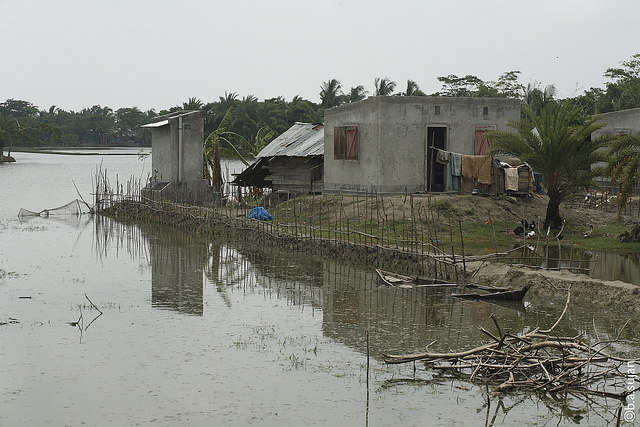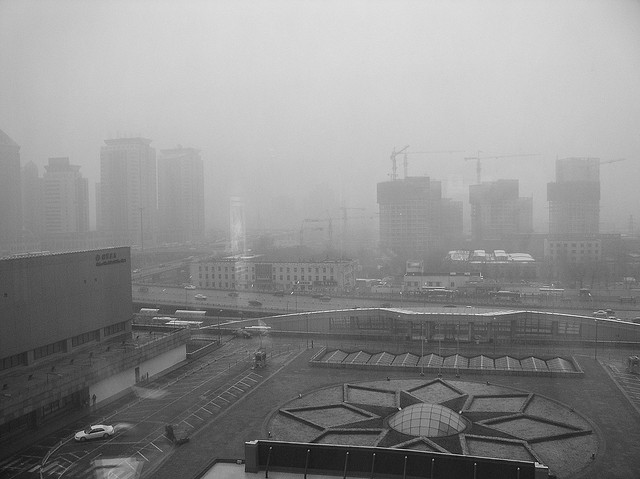Above: Climate change protesters in Melbourne. (Image Credit: Takver | flickr)

As I write this article, world leaders are meeting in Paris to negotiate a significant global commitment to adequately address climate change. We have all heard about the catastrophic events that could happen in the near future if we fail to solve this issue—major cities could be submerged under water due to rising sea levels, life-sustaining resources may become scarce, and parts of the planet may become uninhabitable. But how is climate change actually affecting us today?
A 2012 study by the group DARA International found that 400,000 deaths a year are attributable to climate change, and estimates that the number could increase to 600,000 by 2030. Climate-related events such as rising temperatures, changing weather patterns, and flooding can lead to water contamination, food insecurity, and create environmental conditions where communicable diseases flourish. Despite being low emitters of carbon, developing nations often bear the brunt of these climate events, as their children tend to be the ones who are most vulnerable to climate change. So called ‘climate refugees’ are becoming more and more common in low-lying countries like Bangladesh, the Maldives, and the Marshall Islands where rising sea levels are endangering coastal human settlements and forcing people to flee their homes. Flooding tides damage homes and overwhelm sewage systems, which can lead to cases of dysentery and fever among households. Saltwater penetrates fresh water supplies, causing these areas to become water-stressed. Cities are absorbing most of the people leaving coastal areas, and this burgeoning urban population strains resources like water, food, electricity, and sanitation services, and causes informal settlements to grow. By 2060, it’s estimated that there could be anywhere from 25 million to 1 billion climate refugees a year. Climate change can also politically destabilize countries and create worldwide security issues. Damaged infrastructure and scarce resources may fuel violent conflicts and foster terrorism among disenfranchised people.

People in developing nations are not the only ones who face health risks due to climate change. If you include carbon-related deaths in the number of people dying from climate change every year, the number increases from 400,000 to almost 5 million people a year. Pre-mature deaths from air-pollution, indoor smoke, occupational hazards, and skin cancer tend to happen in high-carbon economies that burn a lot of fossil fuels, and China and the United States are the two top emitters of CO2 in the world. In the United States, there is currently no national limit on carbon pollution levels and these unchecked carbon emissions cause droughts, heatwaves, smog, and extreme weather events. We are facing the health consequences of these events today, as asthma and allergy rates are on rise and disease-carrying tropical insects are becoming more and more common in colder climates.
In order to combat the worsening effects of climate change, national leaders must agree on a comprehensive plan to create a low-carbon world economy. Developed countries must help emerging economies adopt more clean energy sources and help fortify the countries that are most vulnerable to climate change. All countries should also accept significant cuts in their use of fossil fuels. To achieve this, governments must incentivize citizens to use more renewable energies, while heavily investing in green technologies to encourage innovation. Public and private sectors will need to work in tandem to create the best policies that achieve low emission levels, while promoting public health. Overall, the global community must never forget that climate change is a serious threat to human civilization. For too many people it has already become a life or death situation, and it will only get worse if we fail to act.
Emma Klock | External Relations Officer
